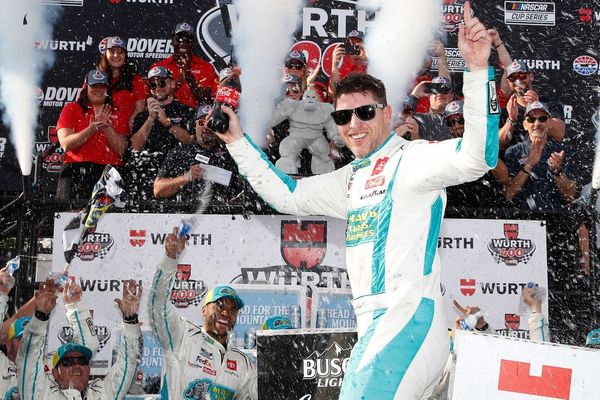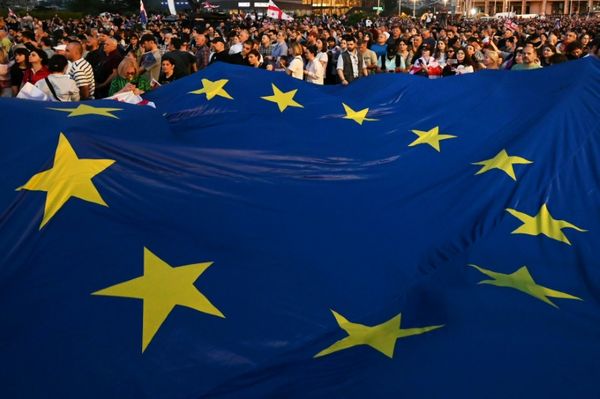
On March 31 this year, Governor-General David Hurley signed off on a small legislative amendment that delivered a valuable tax break to the Australian Future Leaders Foundation — a charity he as governor-general had warmly endorsed.
The tax break was the award of deductible gift recipient (DGR) status to the foundation: valuable because it means that any donation is a tax deduction for the donor, thus opening up the potential for large-scale donations.
And because DGR status attracts a tax deduction — and is a cost to the budget — it needs to be approved by the treasurer. In this case it was Josh Frydenberg (secretly shadowed by Scott Morrison, it has recently emerged).
By giving royal assent to the foundation the governor-general was, on the face of it, caught in a conflict of interest: bringing into law a benefit for a charity he had promoted.
It is also on the face of it a constitutional dilemma for which there appears to be no solution — other than for a governor-general to never allow him or herself to be in that position.
Crikey has sought Hurley’s response.
The royal assent to DGR status is just one of the many questions which has emerged in the Australian Future Leaders Foundation saga, which has snowballed over the past fortnight. It has culminated in the decision of four parliamentarians to move to halt a grant of $18 million, which was introduced by the Morrison government in the weeks leading up to the May election.
Greens Senator David Shoebridge and Jacqui Lambie Network Senator Tammy Tyrrell have lodged motions to disallow the grant. They are joined by independent MP Monique Ryan, with the backing of independent Andrew Wilkie in the lower house.
The $18 million grant was made under an amendment to legislation which is administered by the finance minister. At the time that was Simon Birmingham, secretly shadowed by Morrison. It has emerged, too, that $18 million was merely the start, with the legislation providing for a further $4 million a year, with no endpoint.
Like the DGR legislation, the governor-general also signed off on legislative amendments to enable the $18 million grant. That, too, was in March.
Questions had already been raised about the grant in Senate estimates hearings in April. It was revealed that the Department of Prime Minister and Cabinet (PM&C) had taken the running on dealing with the foundation and its request for financial backing. The PM&C had done the due diligence, such as there was. It had negotiated an agreement with the foundation. There was no open tender for the grant.
It also emerged that the governor-general’s favoured charity had been granted DGR status more quickly than is usual and that the Prime Minister’s Department had been “involved” in moves to grant it.
Morrison’s close involvement was noteworthy — but it suddenly took on a whole new meaning in the light of revelations three weeks ago that he had secretly taken on five ministries. We don’t know who exactly knew the scale of his ministry grab. But one person did: the governor-general, who signed Morrison’s papers.
Crikey reported a fortnight ago on the questions raised. The chronology shows that the governor-general and his office were involved in the development of the Australian Future Leaders Foundation at a time that overlapped with Morrison’s push for more ministries. It meant that at one point the two most powerful figures in government were in a position to accommodate each other’s wants: Morrison and his ministries, and Hurley and his foundation which needed government support.
It has created a disquieting perception, only made worse by Morrison’s secret adoption of the treasurer’s role.
The governor-general’s office has flat-out denied that there is any link between the two. But perceptions matter when it comes to integrity in government and the public’s (flagging) faith in the government institutions. Hence the four independents are raising questions.
Key questions have also begun to emerge about the truth of the relationship between the governor-general, the G-G’s office and Chris Hartley, an upper-crust English chap with royal connections who has been the driving force behind the foundation.
Twitter researchers/citizen journalists Ronni Salt and Jommy Tee have tracked a series of interactions between the governor-general’s official secretary, Paul Singer, and Hartley which suggest a closer relationship than the governor-general’s office had earlier stated.
And what of the foundation’s aims? Singer told Senate estimates that his office and the G-G were “pleased and excited” to be part of “such a bold initiative” to build the future leadership capability in Australia. It was a “new and exciting initiative” that would make an impact “in the national interest”.
Hartley has been awarded honours by the Queen for services to the Duke of Edinburgh’s Commonwealth Study Conferences, which now operate under the patronage of HRH Princess Anne.
To what extent does the foundation depart from the royal roots of its main backer?
It’s an important question to answer in 2022 if the organisation is to be backed by the Australian taxpayer.







